We were up a creek called Mozambique without cold, hard American cash, with no hope of getting into Tanzania, and less than 48 hours left on our Moz visas before getting kicked out of the country. A fitting end, it seemed, to our time in Mozambique.
I called the U.S. embassy in Tanzania to ask their advice. In a nutshell, they told us we shouldn’t have a problem entering Tanzania…but we most certainly needed U.S. dollars, and that we should try and get some before going to Tanzania. Gee, ya think? When asked if she had any ideas, the consular officer told us we should try a bank.
Finally, at our wits end, we had one last idea up our sleeve. Maybe the guy at the front desk of our guest house would have an idea. Now why we didn’t do this in the first place, I’ll never fully understand, but the important thing is that we did eventually get around to asking him. Our conversation (translated from Portuguese):
Me: We have a bit of a problem. We’re flying to Tanzania tomorrow and we need $200 worth of U.S. currency to buy a visa on arrival. We’ve tried all of the banks in town that exchange money but none will give us dollars. What should we do?
Mr. Maitre’d: What you’re going to want to do is this. Now listen carefully. Take a right out of this building and then a right onto the main road. Walk down one block, cross the road and visit the first small shop on the left. There is a man…a man who sits behind a counter on a low stool. A low stool, got it? People say he changes money. I don’t know if he still does. First small shop on the left, no problem.
After a day of running around town based on this and that advice, I wasn’t convinced that this tip would lead anywhere. So, naturally we wanted to verify that this guys actually existed and was willing to part with his American cash for Mets before we withdrew $200 worth of Meticais which would be absolutely useless to us otherwise. After a few passes up and down the road, we finally spotted the shop. An unruly mass of phone credit vendors was crowded around a counter, behind which sat an emotionless man busily exchanging phone credit vouchers for money, and sitting on…you guessed it…a low stool. I told Lori to send for help if I didn’t return in 20 minutes and began to fight my way through the crowd to the front of the line.
At first, the mysterious man paid me no attention. Minutes later, all of a sudden, he shot me a skeptical glance as if to ask me to state my business. I asked him in Portuguese if he knew where somebody could exchange some Meticais around here. He asked, in very clear English, “for what?” I responded back in English, “U.S. dollars.” He considered this for a moment before motioning to one of his young helpers who promptly ushered me into the shop and behind the counter where I was asked to take a seat. The mysterious man asked me how much. I asked if $200 was possible. He turned his attention back to selling his hundreds of vouchers to the continuous stream of eager young vendors. We sat there in silence for what seemed like an eternity, but was probably closer to 10 minutes, before he paused briefly to pull open a drawer filled with several different types of currencies, thumbed through some green bills, closed the drawer and simply replied, “It is possible.” He pulled his calculator out, multiplied 200 by a reasonable exchange rate and showed me the number. I nodded. He nodded and reached for his drawer. I remembered all of a sudden that I actually didn’t have any cash on me and, confessed this to the mystery man and abruptly got up and left.
Now how this guy got ahold of that much U.S. money in Mozambique, why he kept it in a drawer, why he spoke flawless English, or why he wasn’t charging me an enormous commission or giving me a ridiculous exchange rate I couldn’t say. All I knew was that he was the best chance we had at getting out of Mozambique and getting into Tanzania.
We hurried off to the nearest ATM, withdrew the requisite amount of Meticais and hurried back to the small shop, where I was quickly ushered in, once again, and asked to take a seat. We sat together in silence for an additional 10 minutes before he looked over at me and nodded questioningly, to which I nodded in approval. The mysterious man once again reached for his mysterious drawer and extracted ten of the cleanest, crispest, latest-series twenty-dollar bills I had seen in a long time. I can’t remember the last time I was so happy to see my own currency. I inspected every single bill carefully, the security strip, the microprint, smelled the bills, ran my finger over the ink to see if it would smudge. Surely, these must be counterfeit, surely there must be a scam in here somewhere — it all seemed too easy. But from what I could tell, every one of those bills was absolutely legit. They were perfect. I counted out what seemed like a hundred bills of Mozambique’s unpopular currency, handed them over, briefly expressed my gratitude and got the heck out of there before he changed his mind.
Having achieved what hours ago seemed impossible, we were ecstatic. Zanzibar and the Maasai plains beckoned and a long and challenging, yet memorable, chapter in our African adventure was quickly coming to a close.
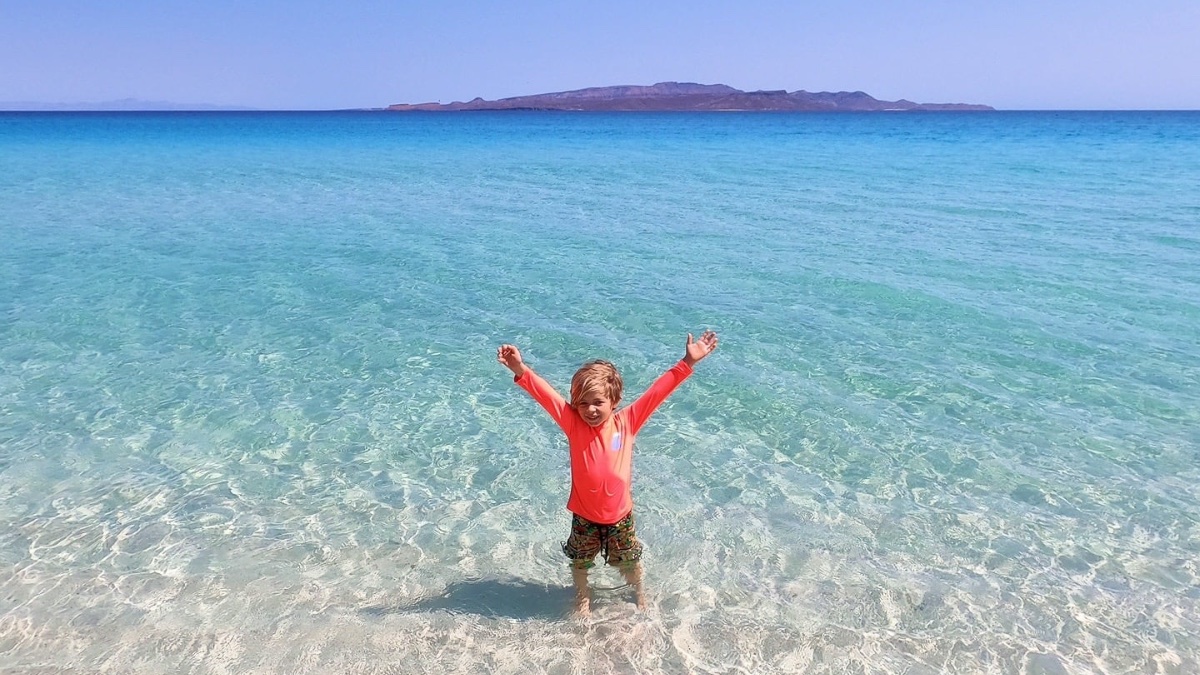
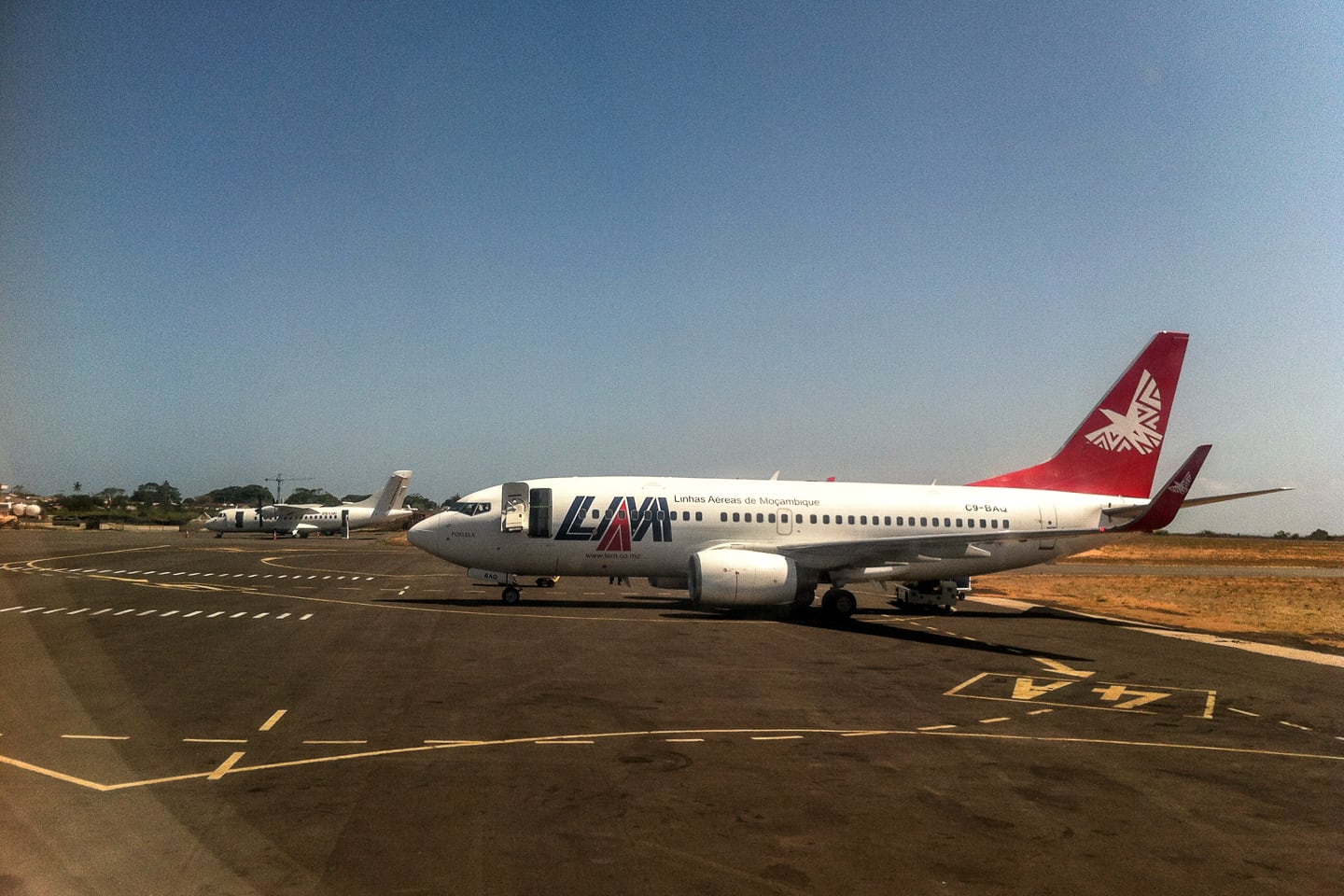
Two days later, we found ourselves waiting in a small departures lounge at Pemba International. It was Wednesday, 29 October, the final day of our Mozambique visa. We hoped the worst was behind us, but the uncertainty lingered. What if in our quest for one component of the visa application we were missing another? What if, despite my best efforts at examining the visa money, that they turned out to be counterfeit? What if the information that I had gleaned from a variety of sourced turned out to be dead wrong and they didn’t issue visas on arrival at the Dar airport? What if it was part of a sting operation and the authorities were on their way as we speak? What if the plane had mechanical issues and was forced to turn back (we were flying on an EU-blacklisted carrier, after all)? Spending another night in Pemba (be it in one of Pemba’s budget hotels or a Mozambican jail — both equally unpalatable at that moment) made our stomachs churn.
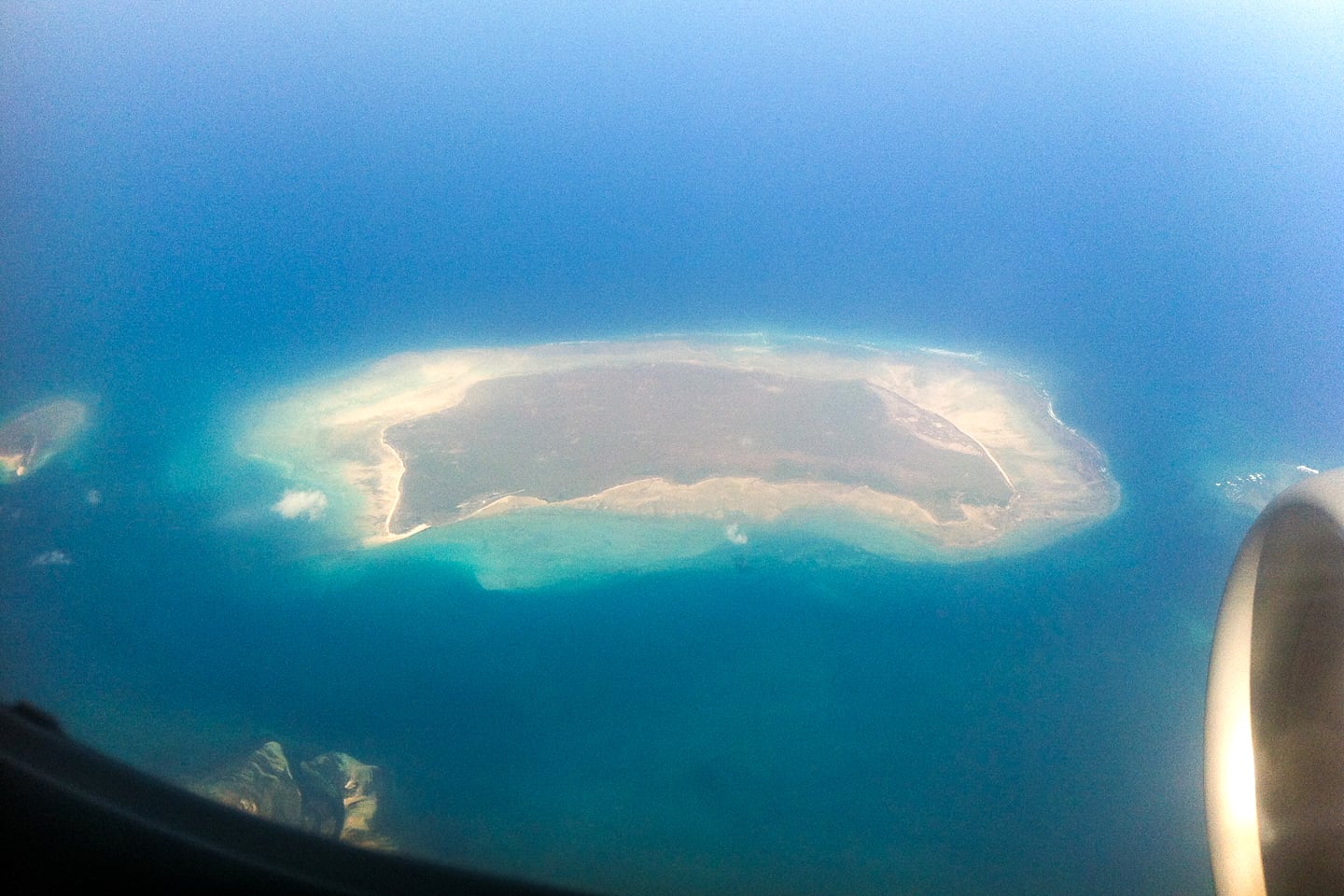
As in the movies Argo or Last King of Scotland, we both breathed an enormous sigh of relief the moment the engines of our 737 were pushed to full-throttle, the nose of the aircraft tilted up and we were airborne. Maybe, just maybe, we’ll be sleeping in Tanzania tonight after all.
Moments later, the Quirimbas, those elusive islands, that exclusive paradise, floated by our window 30,000 feet away. It was a bright, blue day, and the islands looked stunning. But today, we wouldn’t have given anything to be down there versus up here. It was time to make a move on…if the Tanzanian officials were willing.
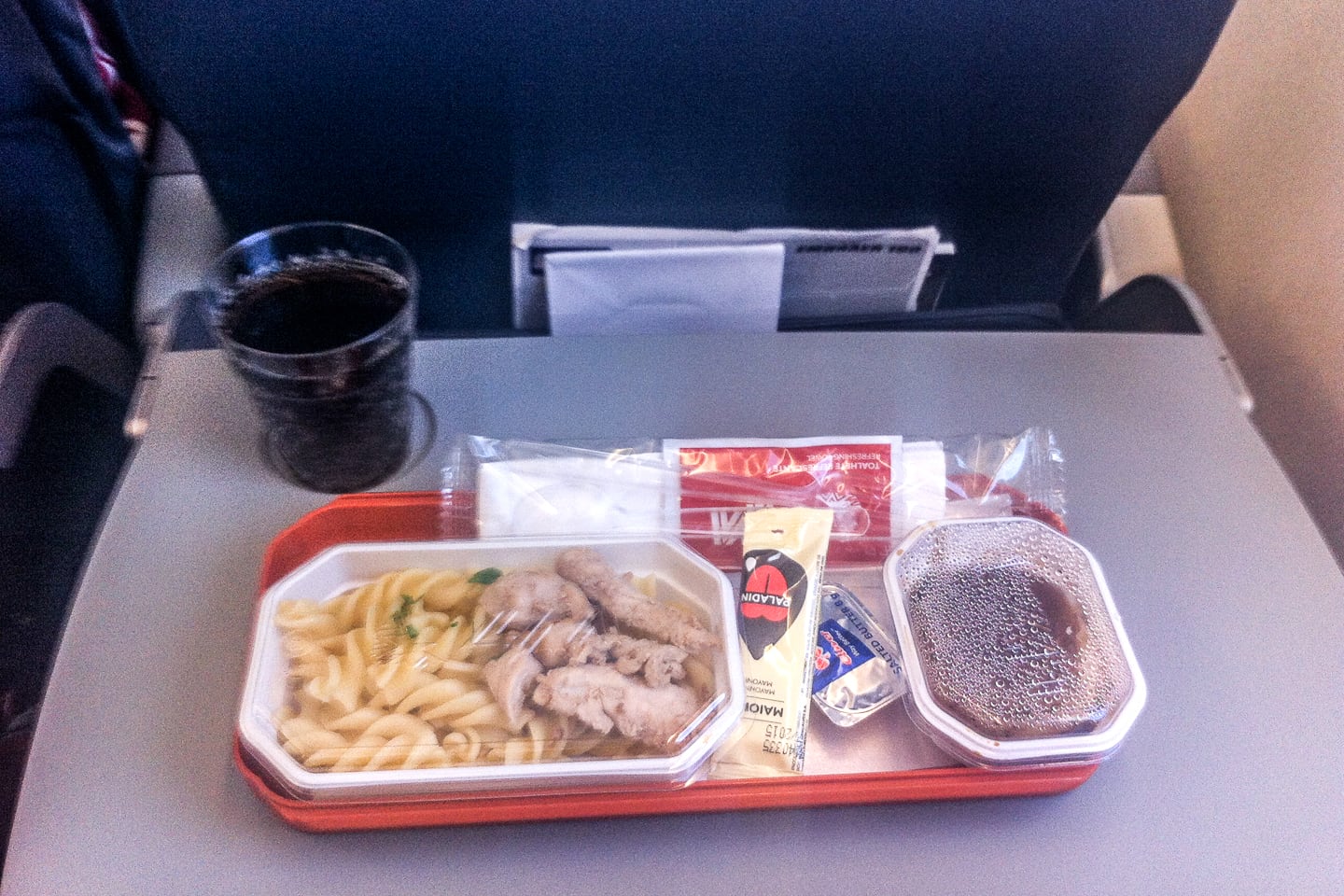
And then, the meal was served — chicken and pasta salad with a Portuguese roll (not pictured) and flan for dessert. Mind you, this is a one-hour-and-fifteen-minute, $130 flight on one of the poorest countries in the world’s flag carrier — and the airline seems to be doing pretty well for itself these days. Meditate on that the next time you’re on a five-hour, $550 trans-continental flight in the U.S. being lulled to sleep by the sound of your stomach desperately begging for a follow-up to that paltry bag of “trail mix” you were forced to buy at the airport bookshop for about as much as the average Mozambican gets paid in a week.
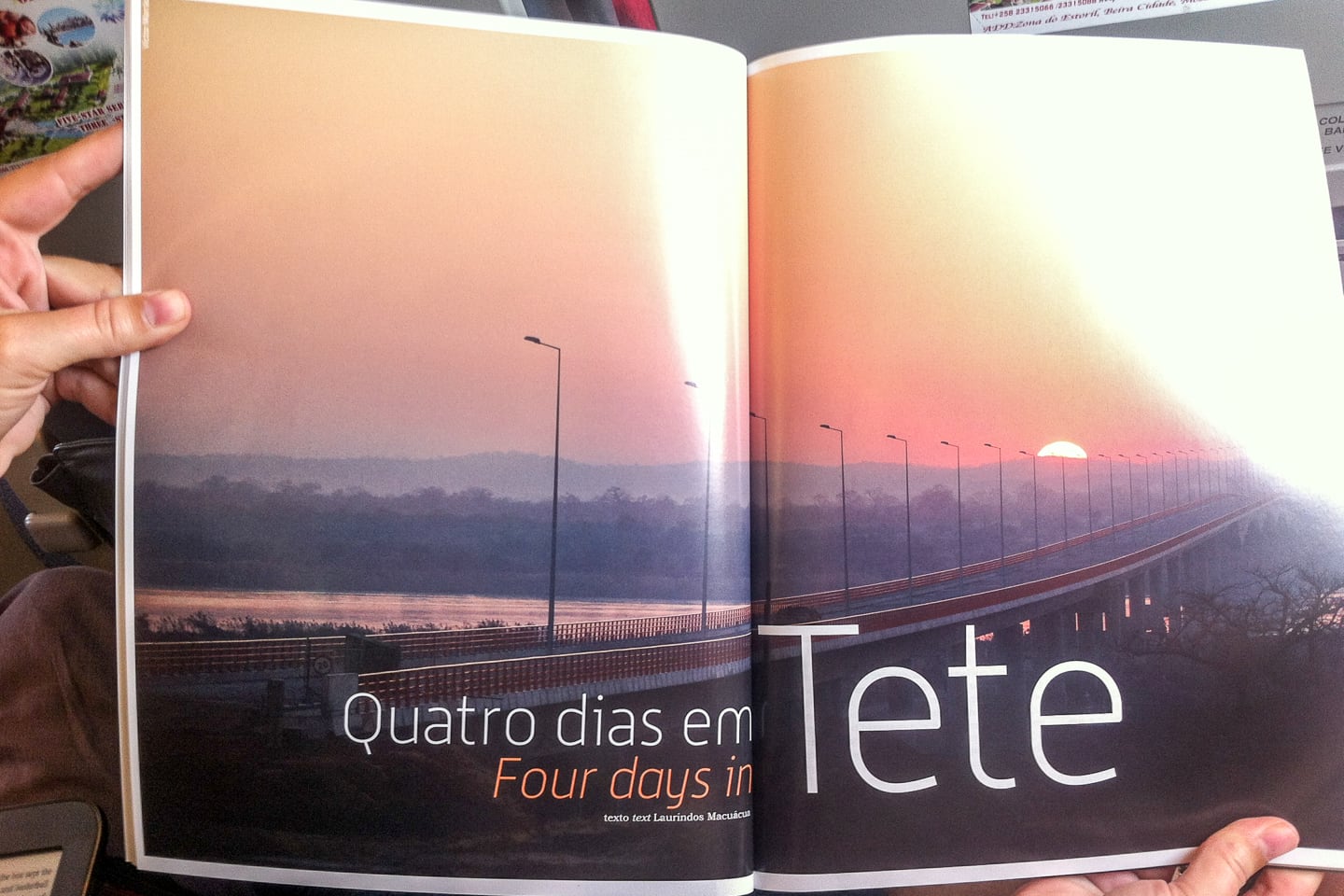
I think my fellow Moz Peace Corps friends will enjoy this feature article in LAM’s in-flight magazine: Four Days in Tete… The author of the feature even goes so far as to include a poem professing his love for Mozambique’s hottest, dustiest and most remote provincial capital. Read the entire Tete love confession online in the LAM Indico magazine archive.
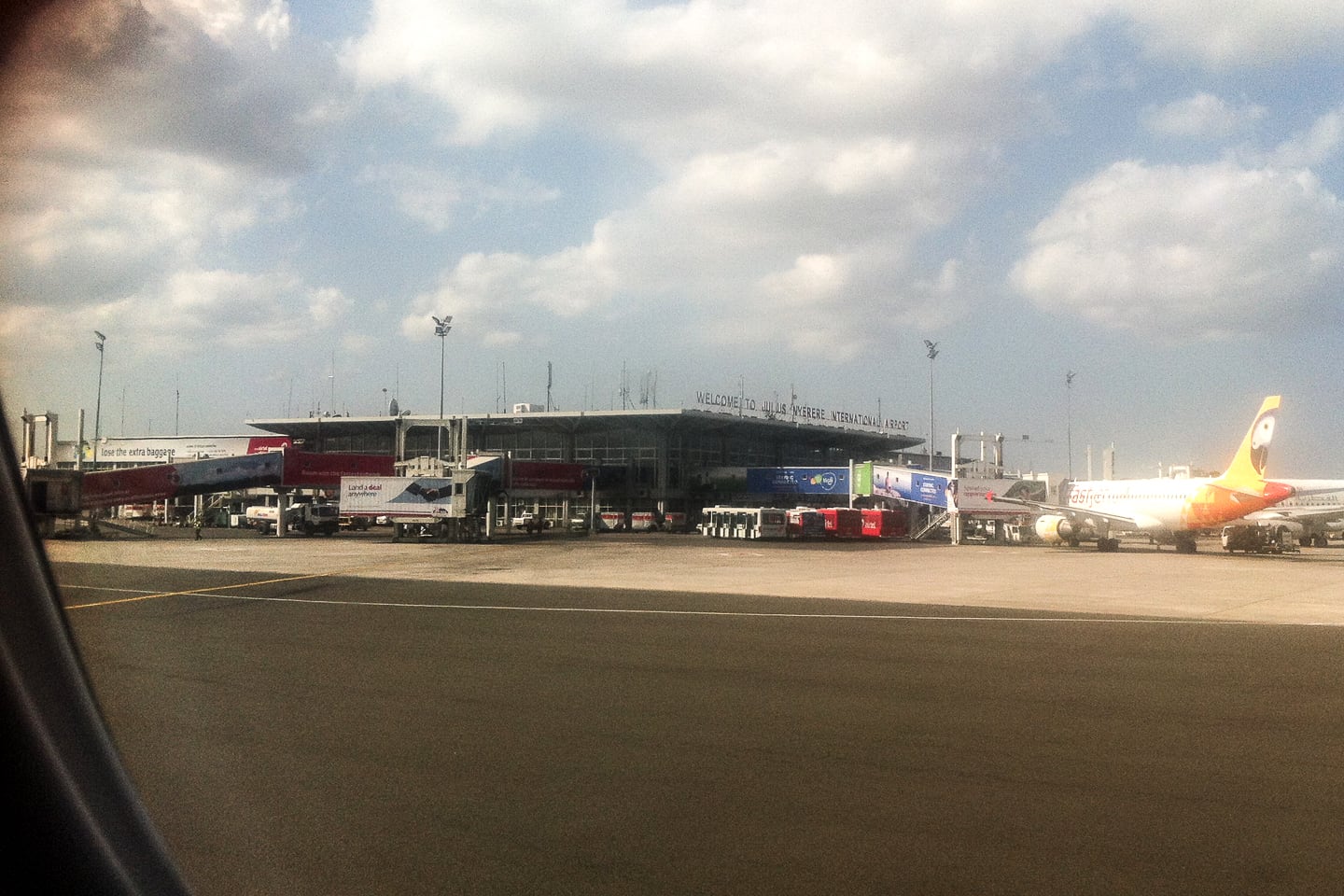
We landed at Nyerere International in Dar and followed the yellow-vested attendant along a painted line on the tarmac and into the immigration office. This was it — go time.
Lori and I weren’t taking any chances. We were prepared with hard-copies of the visa application, two passport size photos each, our passports, Yellow Fever cards, completed blue Tanzania entry cards that the airline attendant gave us before arrival, and of course, $200 in crisp, post-2003 $20 bills between the two of us (Tanzanian authorities have also been known to reject bills older than 2003…no, not picky at all…).
Armed with all the right materials, all the latest info, and a smile, we were ready for battle.
I had read that immigration can take an hour or two at this airport when there are multiple international flights carrying jumbo jets full of passengers arriving at the same time. But it seemed that our little plane from the next country over was the only plane of passengers.
As non-members of the East African Community, we were ushered to the visa window on the right and essentially walked right up to the window. We promptly handed a man in uniform our visa packet (who promptly handed back everything except our passports and the blue card). He scanned our passports, gave a nod and asked for $100 each in U.S. dollars. We handed over the money, the official examined the bills, ran them under a black light, printed out two visa stickers magically bearing our photos (they scan the photo on your passport), stamped the entry mark with the room-shaking thud befitting a man or woman of such a high professional and societal position, of course, and handed both our passports back. The entire process took about two minutes. We smiled and moved on to baggage claim.
It should be noted that the signs posted were very clear that only U.S. currency was acceptable and we did not see a single ATM or money exchange bureau until we were well beyond immigration and customs and out of the international terminal. So, it remains a mystery as to what might have become of us absent our prized American cash, though I think we’d rather not know.
Bottom line, if you’re planning a trip up through East Africa, don’t leave home without clean, post-2003 U.S. currency, as much as you’ll need to cover all visas and a bit extra. Bury it in your purse or man-bag, sew it into the lining of your favorite skivvies, but don’t leave home without it. If, however, you do find yourself in Pemba a little short of U.S. currency, there’s a guy who knows a guy who does the thing in the place down the street. In Mozambique, there always is, it seems. He’ll take care of you.
ON TO ZANZIBAR!!!
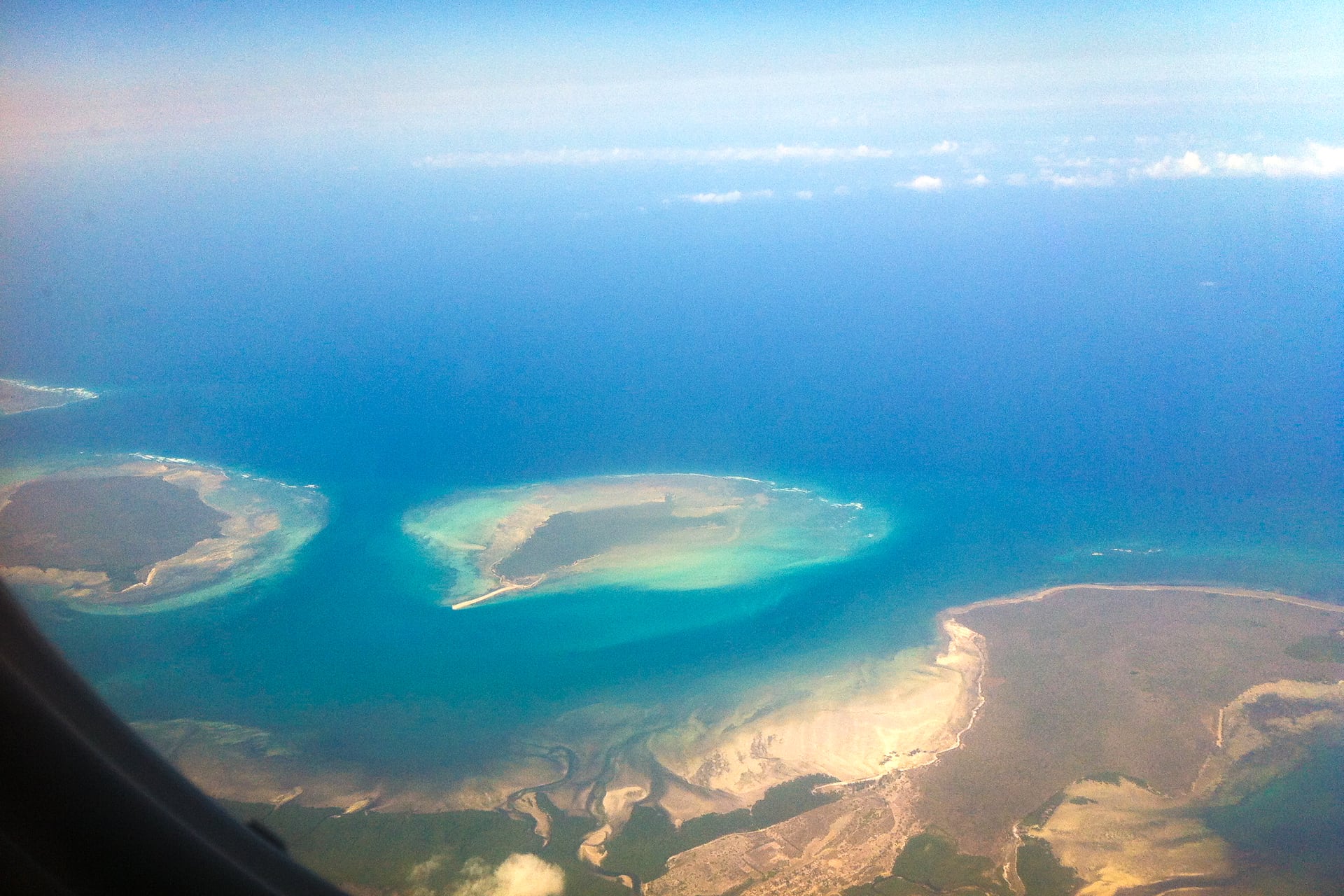
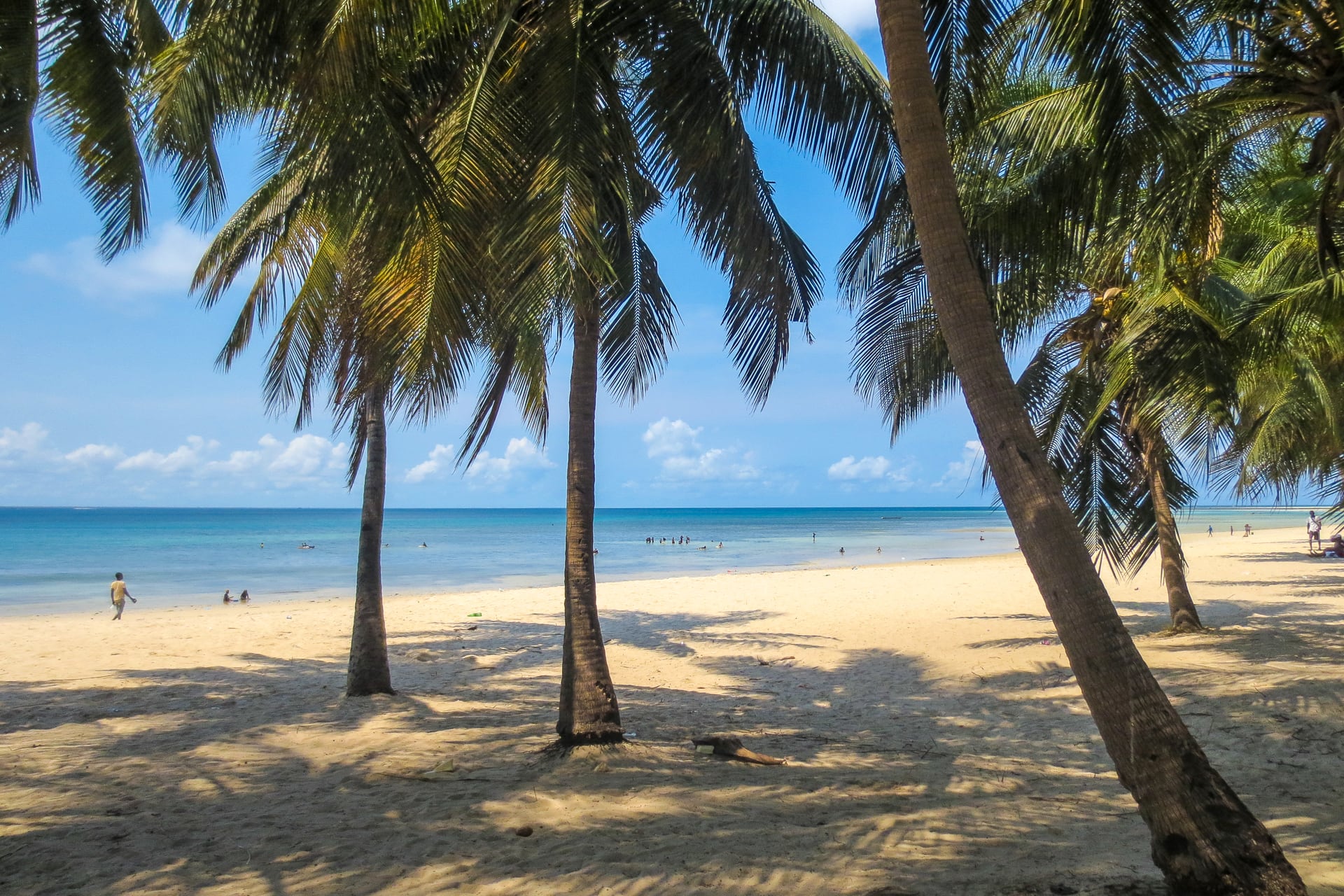
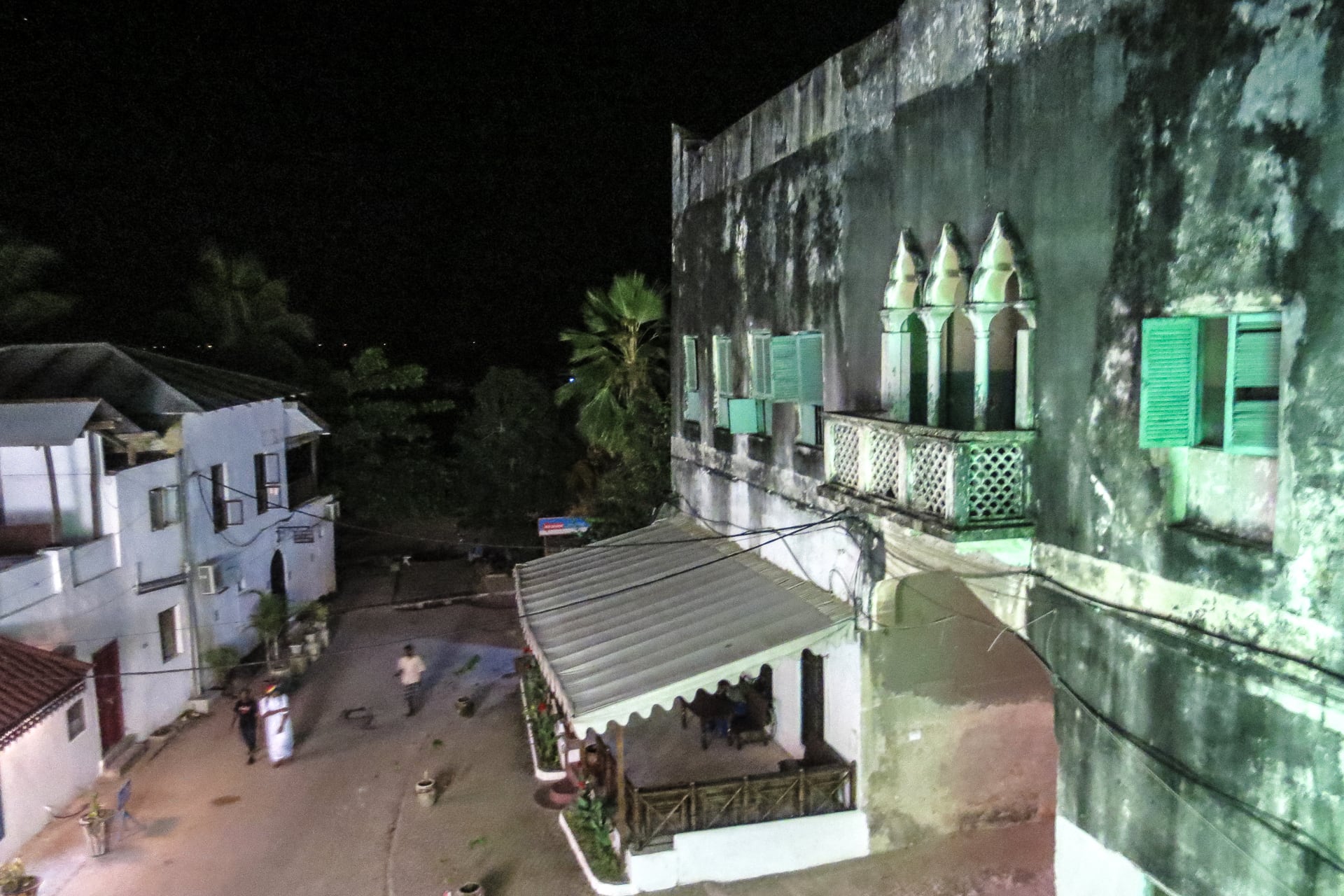
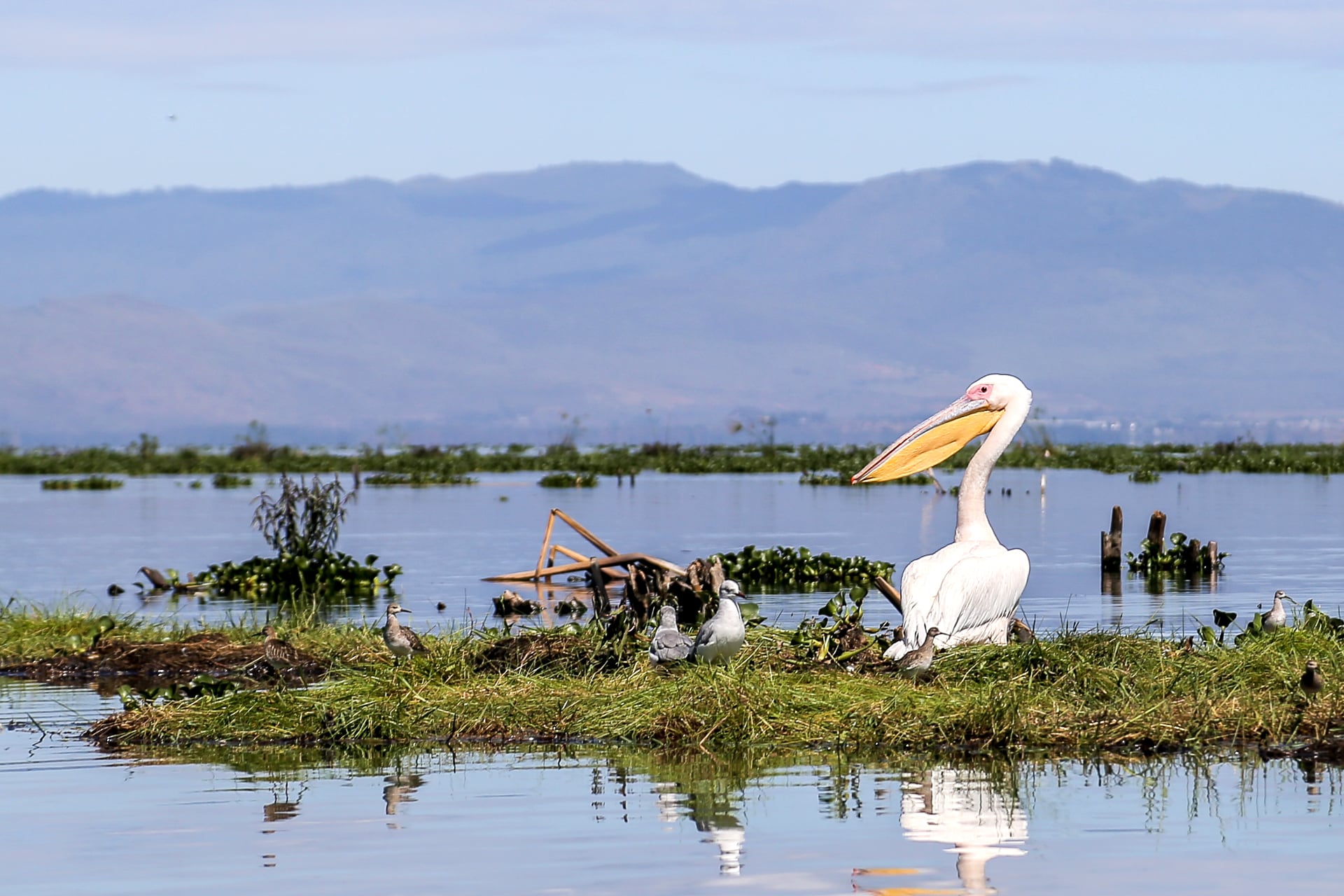
And the saga continues…It’s like reading a novel!